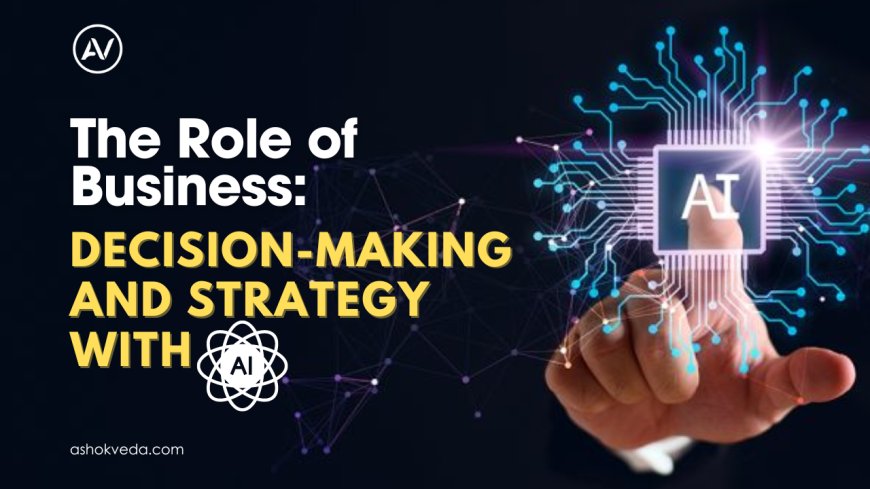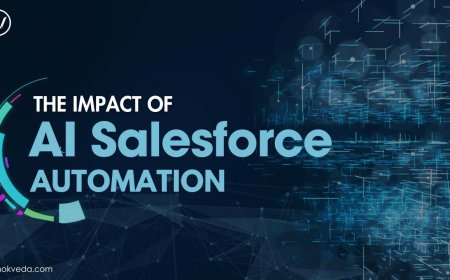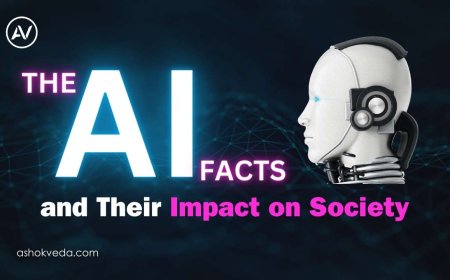The Role of AI in Business Decision-Making and Strategy
Explore the role of AI in business decision-making and strategy development, improving efficiency, data analysis, and market insights.

The application of artificial intelligence (AI) in business has significantly changed how companies plan and decide. AI is important in business planning and decision-making because it enables organizations to swiftly evaluate large amounts of data, identify patterns, and modify their plans to stay competitive. The Role of AI in Business Decisions Making a strategy is more than just handling data. It also improves supply chains, customer service, and practical management. Accurate and timely information is necessary for sound strategy and decision-making. Planning for the future must take AI into account as it continues to develop. In addition to enhancing the prediction of outcomes, this helps businesses create strategies that complement their objectives and market state. Any company hoping to succeed in today's market would be wise to accept the Role of AI in Business Decision-Making and Strategy.
Fundamentals of AI in Business
Machine Learning: Machine learning is the method of teaching computers to learn from data so they can predict future events or make decisions without having to be actively programmed to do so. Businesses use it for tasks like fraud detection and sales forecasting.
Natural Language Processing (NLP): The field of natural language processing, or NLP, seeks to help computers understand and translate human language. In the corporate world, it's utilized for things like chat automation of services and client feedback analysis.
Artificial Neural Networks: These are computer programs created to simulate the functions of the human brain in an effort to enhance computer recognition and problem-solving capabilities. They are employed in business to do things like identify the photos or words of customers.
Deep Learning: a more advanced form of machine learning that enables computers to carry out extremely difficult tasks, such as understanding conversations or identifying objects in images. Companies utilize it to enhance services such as voice-activated assistants and picture searches.
Predictive Analytics: Predictive analytics makes predictions about the future based on historical data. To better plan and strategize, organizations could, for instance, forecast future sales patterns or customer behavior.
Robotic Process Automation (RPA): RPA is the use of software to speed up and lower mistake rates by automating repetitive business tasks like data entry and transaction processing.
Enhancing Decision-Making with AI
Artificial intelligence (AI) plays a crucial role in enabling data-driven decision-making within organizations. Here’s how AI contributes to this process:
Quick Data Analysis: Artificial intelligence is capable of swiftly sifting through large amounts of data to identify key trends and details. Businesses can use these insights to better comprehend the situation and make decisions.
Making Predictions: AI is capable of making predictions based on historical data. This aids in better planning for firms, such as when to increase product inventory or manage peak periods.
Automating Tasks: Artificial intelligence (AI) can do routine operations like filing or data entry. Time is saved, and the data that is used to make judgments is kept clean from minor errors.
Real-Time Decisions: Businesses may make critical decisions instantly and without delay by utilizing AI's ability to analyze data as it is received.
Customizing Services: Artificial intelligence enables companies to modify their offerings in response to the unique preferences and requirements of every client, resulting in increased customer satisfaction and loyalty.
Using Resources Wisely: Artificial intelligence (AI) can examine a company's operations and make recommendations for better ways to use resources like time and money.
Strategic Planning and AI
Artificial intelligence (AI) can quickly analyze large volumes of data and identify patterns; it plays an essential part in defining business strategies. This capacity enables companies to anticipate market developments and modify their strategy as needed. Predictive analytics, which predicts future patterns to better prepare for upcoming demands, is another way that AI improves decision-making. AI also frees up human resources to work on more significant projects by automating repetitive chores. It makes operations more effective by improving resource allocation and personalizing client interactions. These developments show that artificial intelligence (AI) is a vital tool for companies trying to improve their strategy and adapt to changing market conditions.
AI in Competitive Intelligence
Here's a tabular representation of tools that automate the monitoring of competitors’ activities and the benefits of making real-time strategic adjustments based on AI insights:
|
Tools for Monitoring Competitors’ Activities |
Benefits of Real-Time Strategic Adjustments Based on AI Insights |
|
Google Alerts - Notifies you when a competitor is mentioned online. |
Quick Response - Allows businesses to respond swiftly to market changes or competitor moves. |
|
SEMrush - Provides insights into competitors' SEO strategies and online presence. |
Market Adaptation - Enables adjustments in strategies to better align with current market demands. |
|
Crayon - Tracks competitor website changes, marketing strategies, and pricing updates. |
Enhanced Customer Engagement - Personalizes customer interactions based on the latest trends and data. |
|
SpyFu - Offers in-depth data on competitors’ search marketing tactics and ad variations. |
Resource Optimization - Allocates resources more efficiently based on predictive analytics and trend analysis. |
|
Talkwalker - a social media monitoring tool that tracks what is being said about competitors across the web. |
Improved Decision Making - Enhances strategic decisions with data-backed insights into competitors and market conditions. |
Challenges and Considerations
Businesses must carefully review the data used to train AI systems to make sure that AI makes fair decisions. This will help prevent biases such as unfair hiring or loan benefits. Furthermore, everyone can understand and have more faith in these AI systems if it is made clear how they make decisions. Businesses that are transparent about the processes and factors their AI takes into account not only foster trust but also guarantee fair and beneficial results. AI can be applied responsibly and practically in this way.
Future Trends in AI and Strategic Business Planning
AI will transform company operations across multiple sectors. AI in retail could enable stores to provide customers with more individualized experiences. It might facilitate quicker and more accurate disease diagnosis by medical professionals. AI may simplify the detection of fraud and risk management in the financial sector. AI might be used in production to anticipate when equipment will malfunction, preventing delays. In general, AI will assist companies in better utilizing data to make more informed decisions and quickly adjust to market developments. Various sectors' operations will run more smoothly as a result.
AI is transforming business strategy and decision-making by facilitating faster, more informed decision-making and providing deeper insights. Using AI is essential for future company success because it enables organizations to remain competitive and effectively adjust to changes in the market. Businesses can improve customer experiences, accelerate processes, and make strategic decisions with greater knowledge when they integrate AI. These are all critical for success in the quickly changing corporate environment.





































